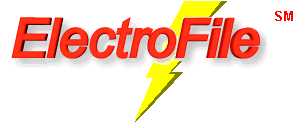
5200 W Market St
Greensboro, NC 27409
336-852-9505
 Terry Hough
Terry Hough
President

|
Income Tax Service
5200 W Market St Greensboro, NC 27409 336-852-9505 |
 Terry Hough
Terry Hough
President |
Just a few weeks ago, a report found that New York City's pension system – the fourth largest in the U.S. – had few internal controls and lacked proper risk management for its $160 billion in assets.
The report stated, "Operational risk is very high and an operational failure is likely."
What this means is that the retirement money for more than 700,000 New York City current and former police officers, firefighters, teachers, and city employees could be in serious danger. The city's comptroller has previously characterized the system as "hanging by a thread."
And according to a report from the Pew Charitable Trusts – an independent research organization – released last year, states and local governments are short more than $1 trillion for their pension systems. Illinois, Kentucky, and Connecticut are less than 50% funded. Illinois is the worst... its pension is only 39% funded. Only South Dakota and Wisconsin are 100% funded, according to the report.
And it's not just government pensions...
In 2012, Hostess Brands – the bankrupt baked-goods company – admitted to using workers' pensions to pay for company operations. Not only was Hostess misusing retirement funds, the company missed more than $20 million in pension payments.
If you're more than 40 years old, you may have a pension, also known as a defined-benefits plan. It's a retirement account that your employer funds and controls. When you retire, your employer agrees to give you either a lump sum of money or monthly payments.
With a pension, you have zero control over what happens. You can't increase or decrease the amount that's being invested. Also, companies hire managers who oversee where pension money is invested. And the fees they charge dilute returns.
Plus, if you die right after you retire, your dependents might get nothing.
But there is a solution...
You can move money from your pension into a self-directed individual retirement account (IRA).
This gives you total control of your money. You get to grow your money tax-free, just like a pension... but there's no limit on how much you can make.
A self-directed IRA is exactly what it sounds like... It puts you in charge of your investments.
In addition to the conventional investments you can make in a typical IRA – like stocks, bonds, and covered calls (something I regularly recommend to my Retirement Trader readers) – a fully self-directed IRA allows you to invest in many other assets, including real estate, private stocks, businesses, and even precious metals.
You can invest in just about anything, as long as it's not employed for your personal benefit. This simply means you must avoid any conflicts of interest. You can't, for example, invest in companies you have a 50% interest in. But you can buy the house next door through your IRA and then rent it to a neighbor. You can also invest in a local small business (again, as long as it's not your own).
I use my self-directed IRA to generate income by selling stock options. When I use this account for options trading, I don't have to follow any accounting or tax requirements.
In fact, if you do all your trading inside a retirement account, you don't have to report any trades to the IRS. The goal is simply to maximize your total returns as quickly and as easily as you can... and get better returns than a pension could offer.
There are two ways to move your pension to an IRA...
One is to "roll over" the pension directly into an IRA. The broker or custodian you're opening an IRA with should have all the necessary forms for you to fill out. I have mine with Fidelity and TD Ameritrade.
You can also take a lump-sum payment on your pension and then move the funds into an IRA. If you do this within days of taking the lump sum, you'll avoid being taxed on the money and the 10% early withdrawal penalty. (If you can, though, just roll over the pension directly – you don't want to risk incurring taxes and penalties.)
And make sure that you check with your employer's pension-plan rules for any fine print.
However you do it, don't wait. Why leave your pension – the money you're counting on for retirement – in someone else's hands?
CAUTION: Don't even consider doing one of these rollovers or taking out any money from your retirement plans without consulting your professional tax preparer first.